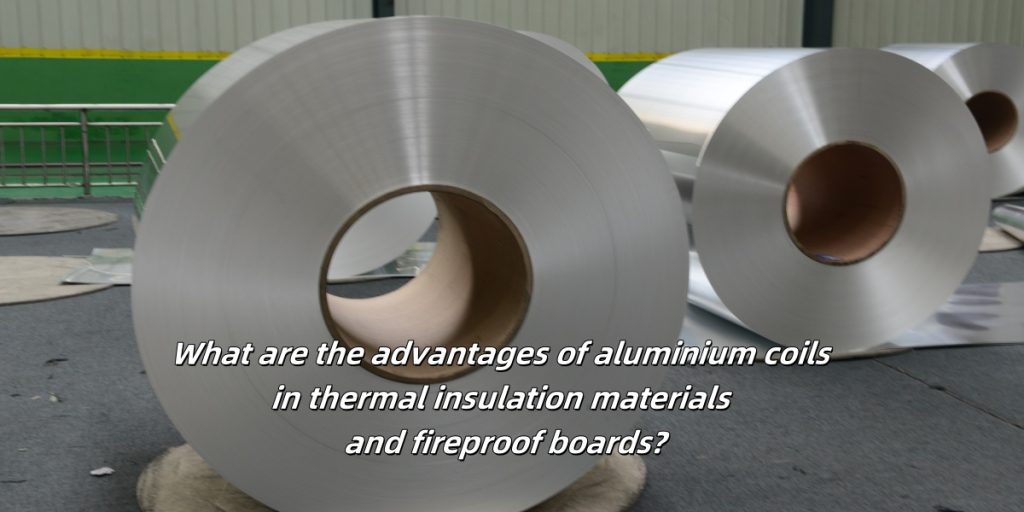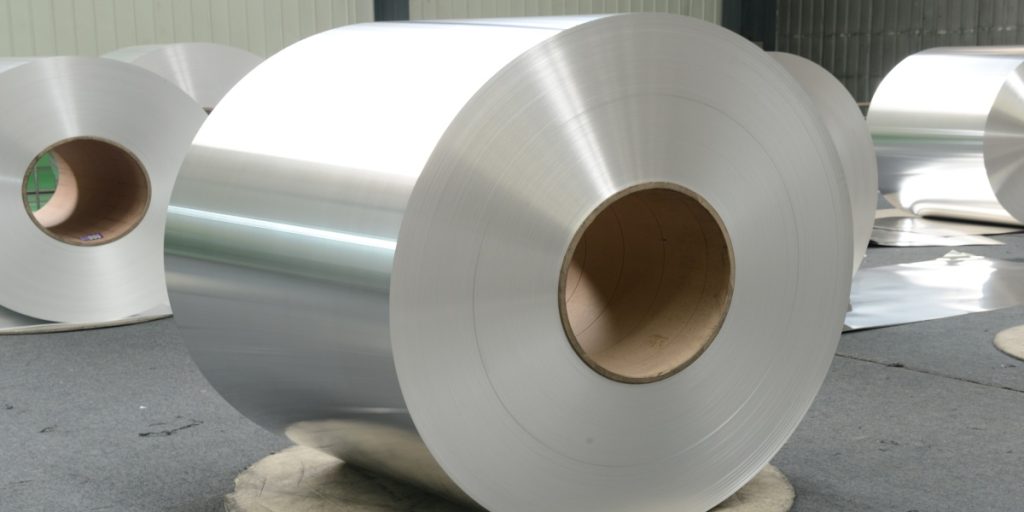
Core advantages of aluminium coils in thermal insulation/fireproof structures
Weight is more than 60% lighter than traditional materials
Compared to steel and cement boards, aluminium coils significantly reduce building loads, making them suitable for high-rise buildings and renovation projects.
Tensile strength and durability
Through alloy optimisation (such as 5052 aluminium coil), aluminium coils maintain structural stability at high temperatures and prevent deformation.
Industrial advantages of aluminium coils in thermal insulation/fireproof structures
Excellent thermal conductivity control
After surface polishing or coating treatment, aluminium coils can reflect over 80% of radiant heat. When combined with rock wool or aerogel, aluminium coils act as a barrier layer with a thermal conductivity as low as 0.05 W/(m·K). In cold chain logistics warehouses, using an aluminium coil + polyurethane sandwich panel solution for roof insulation achieves 40% energy savings.
Superior fire-retardant mechanism
Aluminium has a melting point of approximately 660°C, but its self-protective oxide layer (Al₂O₃) slows down fire spread, meeting A2 fire-resistance standards (EN 13501-1). Unlike PVC and other plastic materials, aluminium coils do not release harmful gases when burning, making them suitable for public spaces such as hospitals and subways.
Superior corrosion resistance and longevity
The dense oxide layer on the surface of aluminium coils resists acid rain and salt spray (passing the ISO 9227 salt spray test for 5,000 hours). Anodising and fluorocarbon coating further extend the lifespan to over 30 years, reducing maintenance costs.
Table 1: Comparison table of the advantages of aluminium coils in thermal insulation materials and fireproof boards
| Superior performance | Compared to traditional materials | Typical application scenarios |
| Low density (2.7 g/cm³) | 60% lighter than steel, resulting in lower handling and installation costs | High-rise building curtain walls and roof renovations |
| High reflectivity (80%+) | Superior thermal conductivity to steel (50 W/(m·K)), comparable to specialised insulation materials | Cold chain warehouses and industrial plant insulation layers |
| Melting point 660°C, flame retardant oxide film | Non-flammable, outperforming PVC (flammable), with lower smoke toxicity than composite materials | Subway stations and hospital fire barriers |
| Natural oxide layer resistant | Significantly longer lifespan than galvanised steel sheets (10–15 years) | Coastal buildings and chemical plants |
| flexible adaptation to irregular structures, reducing seams. | Saves 50% of construction time compared to concrete precast panels | Curved buildings and rapid assembly buildings |
| 100% recyclable | Recycling rate far exceeds that of plastic (<30%) | Green buildings and zero-carbon parks |
| Low long-term maintenance costs, | Initial cost is higher than rock wool, but offers superior durability | Large commercial complexes and public facilities |

Aluminium coils reduce installation costs during construction
Flexible processing
Aluminium coils can be cut and bent on site to adapt to irregular structures (such as curved curtain walls), reducing joints and thermal bridging effects.
Lightweight handling
A single coil weighs only one-third of a steel plate of the same area, saving hoisting time and labour costs.
Efficient construction
Aluminium coils are easy to install and can be used in modular construction, reducing construction time by up to 50%.
Environmental friendliness and sustainability of aluminium coils
In an era where environmental friendliness and efficiency are equally important, aluminium coils have become a benchmark material for sustainable construction due to their 100% recyclability and ultra-low carbon footprint. Compared to traditional building materials, the energy consumption of recycled aluminium is only 5% of that of primary aluminium, and its performance is unchanged, perfectly aligning with global carbon neutrality goals. The durability (over 30-year lifespan) and maintenance-free characteristics of aluminium coils significantly reduce resource waste, helping projects achieve green certifications such as LEED and BREEAM.
From production to recycling, aluminium coils fully embrace the circular economy—choosing aluminium coils is not only about performance but also about taking responsibility for the future of our planet!
Integrate environmental protection into architecture and create value through sustainability!


